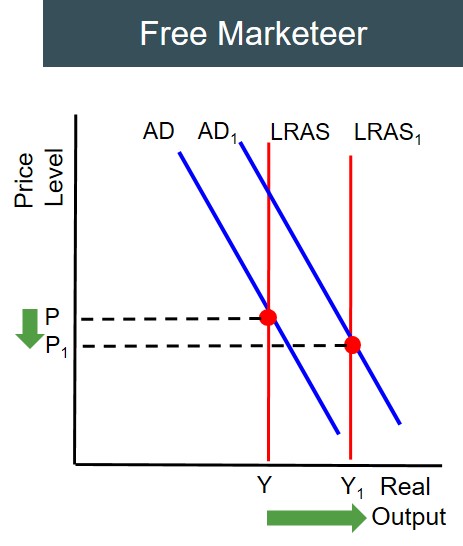A policy perspective that argues that government intervention should be strictly prohibited, on the grounds that it creates an inefficient allocation of resources.
Free market policies ensure the freedom of buyers and sellers to make their own decisions about producing, selling and buying products and services. As a result of these policies it leads to the LRAS curve shifting
The type of free market policies include:
- Deregulation
- Privatisation
- FDI
- Free Trade
- Export-Led Growth
The resulting impact of a free market policy is for the LRAS curve to shift to the right and this reduces inflationary pressures in the economy, whilst expanding real output. This is shown below
